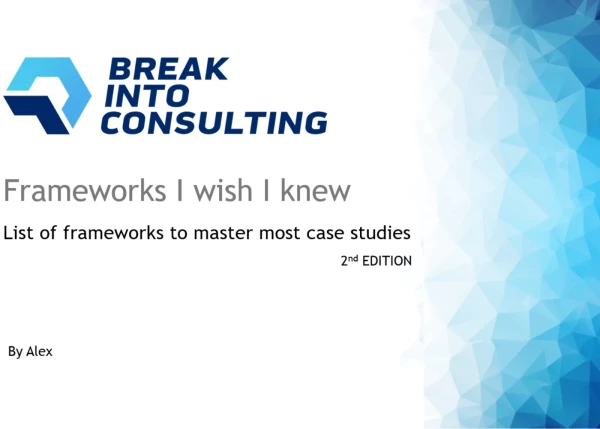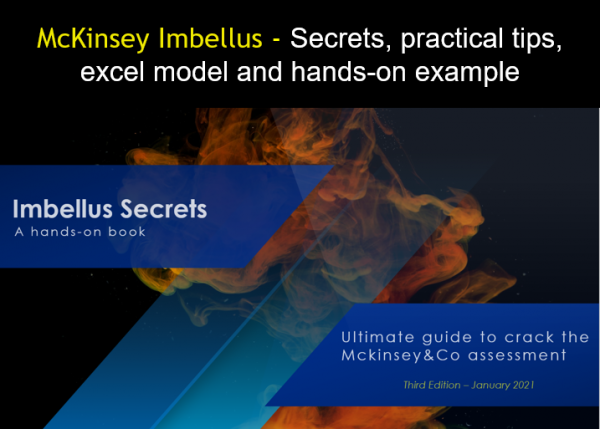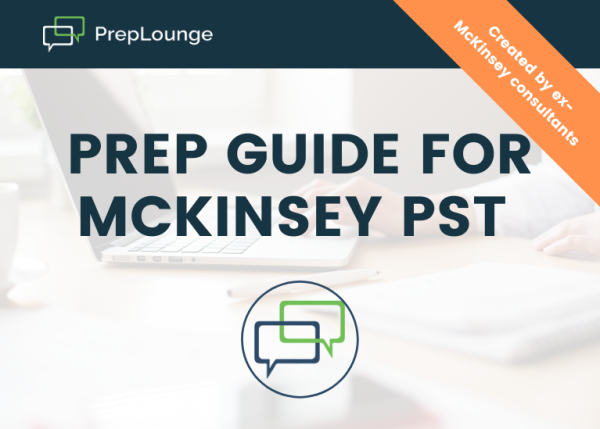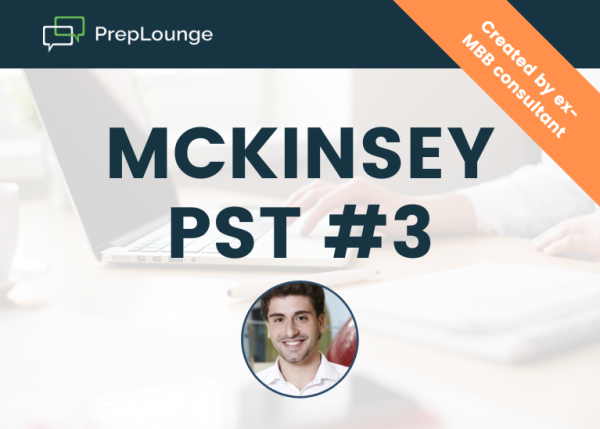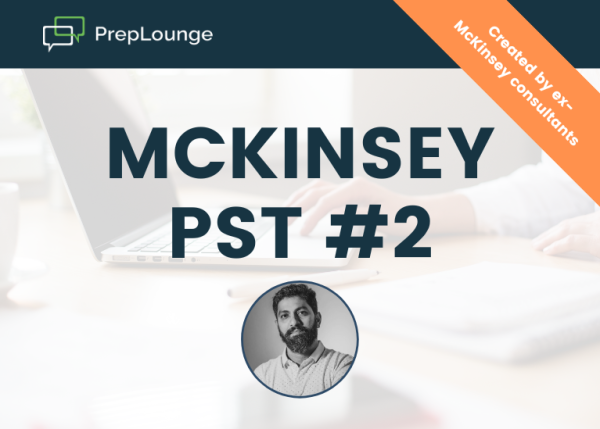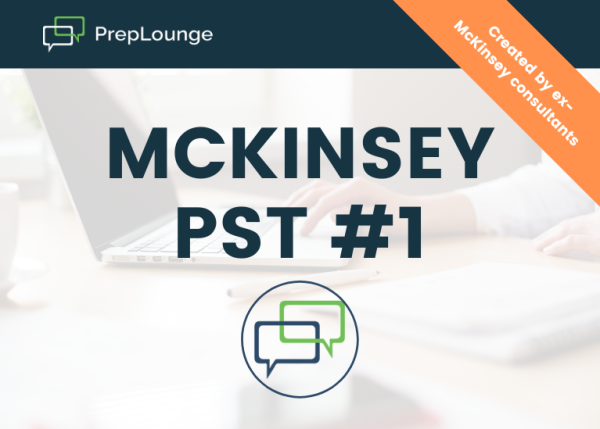hey guys,
recently I had a few cases where the objective was to improve the clients business, for example
1- Increase the profits of a product
2- increase the number of people getting vaccinated in a city
3- Improve output of the R&D department
I kind of struggled in their structuring, im not into frameworks alot but sometimes they guide you in approaching a case. So my question is, how would you guys approach such type of cases? what areas will you look at? thanks!






